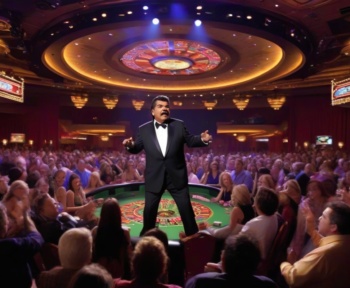In the realm of high-stakes celebrity legal disputes, each case is typically enveloped in a complex weave of accusations, denials, and strategic maneuverings. A particularly captivating example of this is the legal fray involving renowned music moguls Jay-Z and Sean “Diddy” Combs, juxtaposed against allegations made by attorney Tony Buzbee. This situation has garnered substantial attention due to its layered assertions involving coercion and extortion, highlighted in sharp accusations from Jay-Z’s lawyer, Alex Spiro, against Buzbee and his practice.
At the core of this controversy are Spiro’s assertions that Buzbee coerced a woman into presenting false allegations against Sean Combs. In meticulous detail provided in a letter to Judge Analisa Torres, Spiro paints a vivid picture of the woman’s ordeal. Initially seeking legal representation from Buzbee’s firm for claims unrelated to Diddy concerning sex trafficking and abuse, she claimed that she was pushed by Buzbee’s associates to pursue an anonymous lawsuit rather than a criminal complaint, contrary to her interests. More disturbingly, she was allegedly urged to craft a narrative involving drugs, distorting her actual experience. This coercion claim sheds light on potential manipulations within legal practices, especially concerning power dynamics and the ethical responsibilities of attorneys.
The woman, feeling misrepresented and aggrieved, decided to leave Buzbee’s firm. She later approached Jay-Z’s legal team, conveying her frustrations and concern about how such practices might harm genuine victims. This paints a stark picture of the potential misuse of legal authority and raises questions about the ethical responsibilities that lawyers have towards their clients.
In response to these heavy accusations, Tony Buzbee has robustly defended his firm’s conduct. Denouncing the coercion claims as “ridiculous,” Buzbee asserted his firm’s dedication to pursuing only substantiated cases and firmly denied any allegations of forcing false statements from clients. He emphasized the integrity of his legal practice, and pointed out the challenge in addressing claims from unidentified individuals, noting that his office often encounters prank allegations.
These disputes form part of a far-reaching, convoluted legal battle that includes a lawsuit filed by Buzbee against Jay-Z and Diddy, alleging their involvement in a sexual assault incident dating back to a 2000 award show after-party. Jay-Z counters these claims, accusing Buzbee of attempting to coerce a hefty financial settlement by leveraging unfounded accusations, thus spinning a web of legal entanglements marked by both sides deploying public and legal tactics to pressurize the opposing camp.
The interplay of public relations and media portrayal in this case is critical. Buzbee, recognized for his bold legal tactics and skilled use of media to shape public opinion, continues to handle high-profile allegations involving abuse under complex circumstances. The swirling media narratives around these allegations contribute significantly to shaping public and judicial perceptions of such legal confrontations.
Public reactions add another layer to the unfolding drama. Jay-Z has publicly criticized Buzbee, condemning his actions as unbecoming of a former Marine, while Buzbee has dismissed such remarks as mere intimidation tactics, advocating for transparency and honesty in his handling of the case. These exchanges underscore the strategic employment of public statements to manage perceptions and influence public discourse surrounding the legal proceedings.
This case encapsulates broader debates about legal ethics in celebrity litigation. The balancing act between aggressively advocating for alleged victims and ensuring the integrity of accusations requires nuanced judgment and ethical rigor. Buzbee’s firm, with its history of tackling difficult and sensational cases, often highlights the plight of abuse victims but also brings up concerns regarding legal overstretch and the manipulation of narrative for tactical advantages.
As this legal saga unfolds, it serves as a rich source for analyzing the dynamics at play in cases involving high-profile figures where legal, ethical, and public relations strategies intersect intricately. It challenges the legal system to navigate effectively in adjudicating issues that involve not only legal judgments but also public relations battles and the molding of public opinion.
In essence, the unfolding legal battle between Jay-Z and Tony Buzbee is emblematic of larger issues at stake in the realm of celebrity litigations. It emphasizes the need for diligent and ethical legal representation, sensitivity in handling allegations, and the complex interplay between legal outcomes and public narratives, reminding us of the profound implications these cases hold for justice and public perception in the contemporary media landscape.




